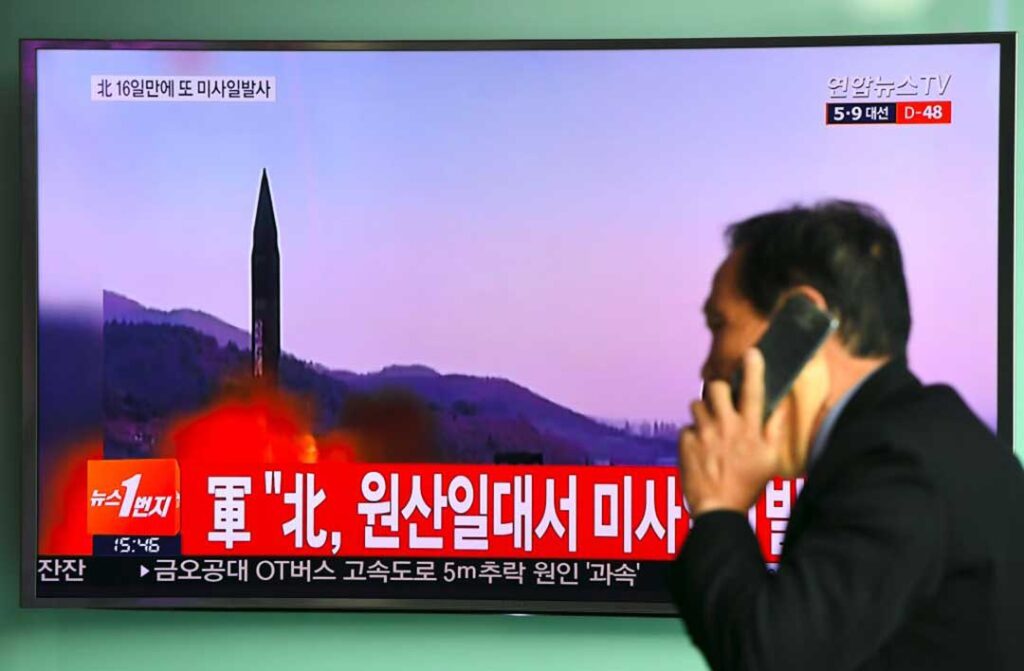North Korea appears to be preparing to launch a reconnaissance satellite, a move that may prove as controversial as the nuclear-armed country’s weapons tests because they use the same banned ballistic missile technology, experts say.
North Korea conducted a record seven missile launches in January 2022 and has suggested it could resume testing of nuclear weapons or its longest-range intercontinental ballistic missiles (ICBMs) for the first time since 2017.
After a test of satellite-related systems during a missile launch on March 6, 2022 — the second such test in a week — experts think it is just a matter of time before North Korea tries to put a satellite in orbit.
Here’s what we know about North Korea’s race for space and why it’s so controversial:
Since 1998 North Korea has launched five satellites. Two were successfully placed in orbit, including its last in 2016. International observers say the satellite appears to be under control, but there is lingering debate over whether it sent any transmissions.
Experts at the time of the 2016 launch said North Korea used a three-stage rocket booster like the Unha-3 of previous launches but that a new launch pad was clearly built for a larger rocket.
A senior official at North Korea’s space agency said after the launch that the agency planned to put more advanced satellites into orbit by 2020 and eventually “plant the flag of (North Korea) on the moon.” The country has not launched any satellites since. (Pictured: A man in Seoul, South Korea, walks by a TV monitor showing footage of a North Korean missile launch.)
During a party congress in January 2021, leader Kim Jong Un revealed a wish list that included developing military reconnaissance satellites.
The United States and its allies called North Korea’s latest tests of satellite systems clear violations of United Nations Security Council resolutions, which prohibit any development of technology applicable to North Korea’s ballistic missile programs.
North Korea countered that its space program and defense activities are its sovereign right.
At the time of the 2016 launch, North Korea had yet to fire an ICBM. The satellite launch was condemned by governments in the U.S. and South Korea as a disguised test of ballistic missile technology capable of striking the continental U.S.
“The obvious concern is that North Korea is testing ballistic missiles and only pretending to care about satellites,” the U.S.-based monitoring program 38 North said in a report at the time.
The report said the Unha-3 system would be ungainly to use as a weapon because it required a fixed launch site and a long period for preparation. It predicted that North Korea would not develop an operational road-mobile ICBM until after 2020.
North Korea launched its first road-mobile ICBM the next year, and later test fired several more.
North Korea has not test fired an ICBM since 2017, but now officials in Washington and Seoul fear a new satellite launch could help the country further improve its ballistic missiles.
IMAGE CREDIT: AFP/GETTY IMAGES

